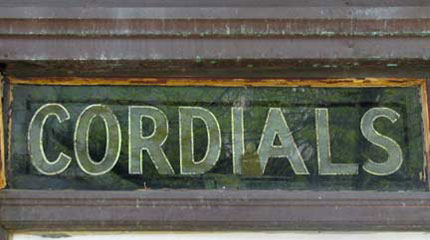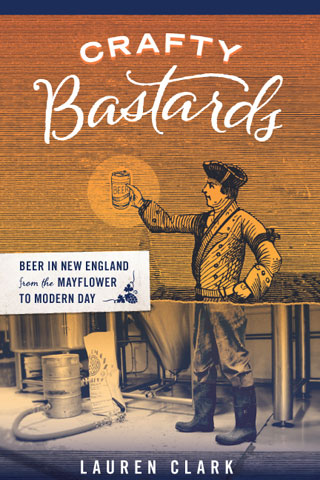November 5th, 2009
Cordial confusion

I got to thinking about Massachusetts’ peculiar “cordial license” recently after sitting down with Courtney Bissonnette to get a sneak peak at her cocktail menu for Coppa. The latest venture by prolific chef Ken Oringer is set to open in the South End any minute now and amp up the Italian enoteca concept the way Toro has done with Spanish tapas. Bissonnette will helm the bar program at both establishments, in which her husband, chef Jamie Bissonnette, is a partner.
Unlike Toro, which has a full liquor license, Coppa has a beer and wine license with a permit to serve cordials and liqueurs. So Bissonnette, collaborating with head bartender Corey Bunnewith (recently of Drink), devised a list of cocktails based on, yes, liqueurs like St. Germain and Cherry Heering, but also vermouths and other aromatized wines, Italian bitters like Aperol and Campari, and a splash of Plymouth Sloe Gin and Pimms No. 1. It includes an Aperol Spritz (Aperol, prosecco, soda) and a Lenny e Joan (Plymouth Sloe Gin, dry vermouth, Cynar, lime, orange zest, sugar rim). Creative, tasty-looking stuff, and, as Boston magazine recently pointed out, Coppa isn’t the only place making cocktails within the confines of a cordial license.
Which brings us to the question: just what are the confines of such a license? Well … no one really knows. “It was never spelled out in writing,” said a long-time member of Boston’s liquor wholesale industry who wishes to remain anonymous. This source — I’ll call him Stan — says that the license came about because of Italian-American drinking customs. Specifically, North End restaurateurs, who typically had beer and wine licenses, were miffed about getting busted periodically for offering their clientele a customary after-dinner shot of Sambuca or Strega. So, in 1994, the cordials and liqueurs permit was born. Stan connects this development to the growing clout of Italian politicians around that time. While I haven’t done the research to verify that claim, it is intriguing that 1994 marked the beginning of both the cordial license and Tom Menino’s long (and, since Tuesday, getting longer) tenure in the mayor’s office.
Anyway, the thing about the cordial license is that “cordial” and “liqueur” have been liberally defined. Most people — including liquor industry folk, says Stan — first assumed that the license referred only to sugary spirits flavored with various fruits and botanicals. But over the years, outliers snuck in. Grappa? Pisco? Check. Applejack? Check. Flavored vodka? Check. So … if you’re a grape-based spirit, and you want to be served under a cordial license, say you’re from anywhere but France. If you’re applejack, don’t worry; only about three people in the city know what you really are (70% grain neutral spirit — woo hoo!). And if you’re vodka, just infuse yourself with kiwi or something to make yourself seem cute and harmless as a bunny, even though you’re sugarless and 80 proof.
It all adds up to one very grey area, where some spirits attract scrutiny and others don’t. Grappa is an example of the former, and therefore is typically served on the sly, according to Stan. It is actually up to the wholesale companies to decide what they are and aren’t allowed to sell to establishments with cordial licenses. And they all do so individually, says Stan, so there tends to be some variation in product listings. A restaurateur might be able to get, say, applejack through one wholesaler but not another.
While a full liquor license is almost always going to be the most desirable type of license, mixologists can get pretty creative with a cordial license. And, presumably, these licenses are cheaper and easier to get than full licenses, which are strictly capped and therefore so coveted that corruption regularly ensues. Liquor laws are weird in a sometimes cool way. I love that a special provision created to accommodate the customs of an influential ethnic group has spawned creative bars that are mixing interesting drinks with unusual ingredients. And it’s nice knowing that if I go to a place like Coppa and I’m not in the mood for a mixed drink, I can get a nice, civilized, 110-proof shot of green Chartreuse.
Tags: Coppa, cordials, liquor license, Massachusetts liquor laws
Posted in Applejack, Liqueur, Pisco, Vermouth | 6 Comments »
